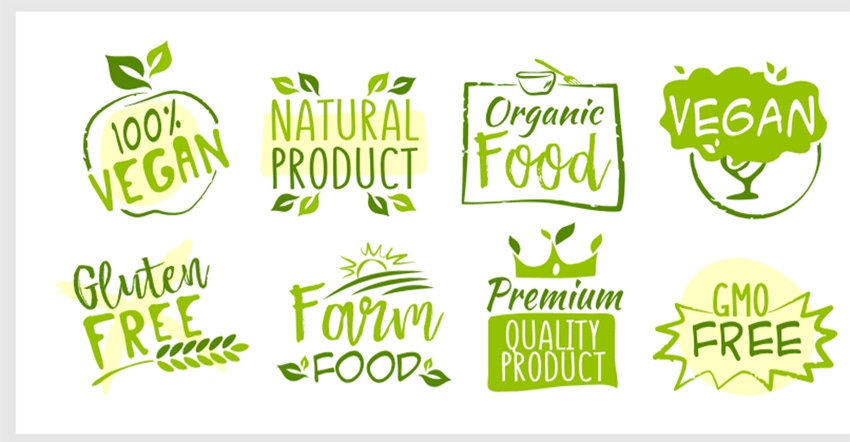Brands that “over share” are often not the brands that successfully engage consumers because they are throwing way too much at an audience that likely doesn’t care.

Yes, it is. No question. Just ask a few of your customers. It seems every month a new certification seal pops up. For the end consumer, excessive certifications are an alphabet soup of buttons and badges that make their eyes glaze over after a brief encounter with a digital or print ad, sell sheet or scrolling web page.
Do Certifications Add Value to Brands?
In moderation, certifications can add credibility and legitimacy to a brand offering. They also add an implied third-party endorsement, which matters greatly to end consumers. In the past decade, in particular, as transparency has become of greater concern for consumers and customers, certifications add a note of authenticity to a brand by assuring buyers the brand made the effort to validate for certain standards.
How Do Claims Differ from Certifications?
For many customers and consumers, the line between claims and certifications is increasingly blurred, mostly because marketers have invented their own terms and seals and wording that make it difficult to discern what is a legitimate third-party certification and what is “marketing speak.” Common claims include “no artificial ingredients,” “all natural,” “no high fructose corn syrup” or “clean label,” to name a handful. These can be marketing statements or claims, and while FDA, FTC or a class action lawyer might take offense to how a brand makes these assertions, most of them go unchecked without an agency enforcing compliance. Certifications are more formalized third-party endorsements with strict standards for compliance, such as USDA Organic, Non-GMO Project Verified or NSF certified.
In terms of the role they play, claims primarily serve to address potential consumer concerns, dietary restrictions, or attract those on an elective diet regimen like ketogenic, paleo, vegan, gluten-free, etc. Certifications serve to reinforce product or ingredient quality, and also to build trust and equity in the brand name.
What Causes Certification Fatigue?
Increasingly, effective marketing outreach has revealed (often the hard way) that when it comes to brand education, sometimes less is more. A target audience member only has so much time and attention to devote to a brand message, and the more information crammed into each point of contact, the more likely consumers or customers are to tune out or move on or delete or click “close.” Brands that “over share” are often not the ones that successfully engage consumers because, frankly, they are throwing way too much at an audience that likely doesn’t care. Smart marketers are selective in what they share and where they share it. This applies to certifications as well. I would argue a stream of 10 miniscule certification seals or logos is dramatically less effective than three or four key certifications that mean something to the customers or consumers who buy or consider buying that brand.
In addition, detailed certifications don’t belong on the principal display panel (PDP) of a label. They belong on the brand’s website or literature where they can be showcased and explained. Because, let’s be honest, the majority of consumers likely can’t define what non-GMO means, and non-GMO and USDA Organic are commonly confused even though they are not at all the same thing. If all the money spent educating consumers about these big time certifications is producing lackluster results, it should cause concern about the other dozen claims and seals plastered all over every piece of marketing communication.
What Are Best Practices in Certification and Claim Marketing?
Some best practices when using claims and certifications to promote a brand to a customer or end consumer include:
Start with the consumer. What matters to them? What assurances do they look for in your category? What would help them engage with your brand? What claims can you offer the consumer that your competitors can’t?
Prioritize claims and certifications according to consumer appeal. Display them where the consumer is spending time and can study them and understand them, like a website or in a video clip. A sea of seals is just that—avoid it.
Be specific, not general. Don’t say “100% sustainable;” say “up cycled from the farming waste stream.” Don’t say “traceable;” say “controlled from seed to shelf on our own 300-acre farm.” Don’t say “better for the planet;” say “we actively practice regenerative agriculture.” There is a huge difference between these statements. Just ask your customers.
Don’t hide behind seals and certifications. Certifications enhance a brand and add value, but they don’t define a brand. Every brand needs to tell its own story in its own words. Don’t depend on third parties to tell your story. Define your key messages and use claims and certifications selectively to enhance the storytelling, not replace it.
Certification fatigue is indeed real. Avoid it like the plague. Your customers and consumers will thank you.
Jeff Hilton is partner and co-founder of BrandHive (brandhive.com), a prominent healthy-lifestyle branding agency celebrating 22 years working with dietary supplement, functional food and beverage, and health and beauty brands. He brings 40 years of advanced business and marketing insight to his clients, and has been recognized by Advertising Age magazine as one of the nation's Top 100 Marketers. He is also a recipient of Nutrition Business Journal’s Personal Service Award.
Learn more about the certification dos and don’ts from Jeff Hilton during the “Claims & Certifications: What Do They Mean and Who Cares?” session on Thursday, Oct. 17 at 9 a.m., at SupplySide West in Las Vegas.
About the Author(s)
You May Also Like






.png?width=800&auto=webp&quality=80&disable=upscale)